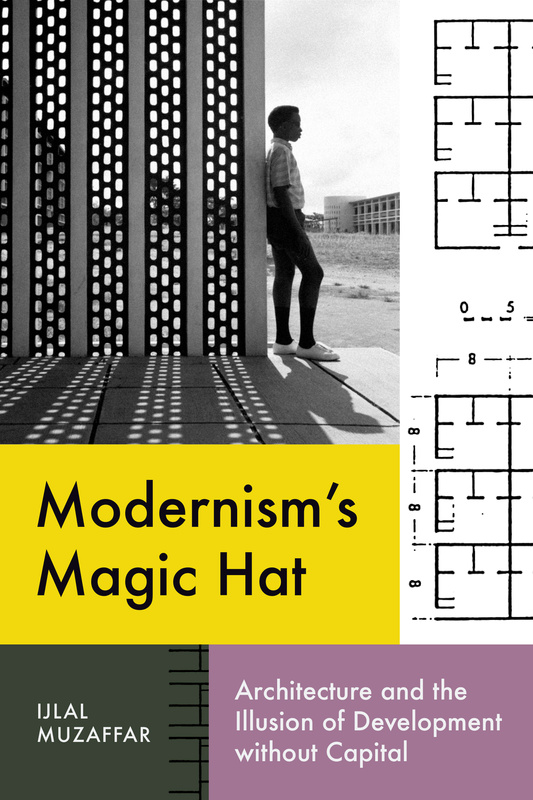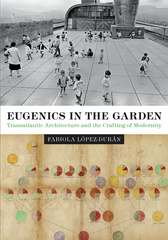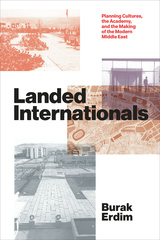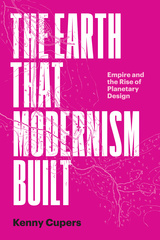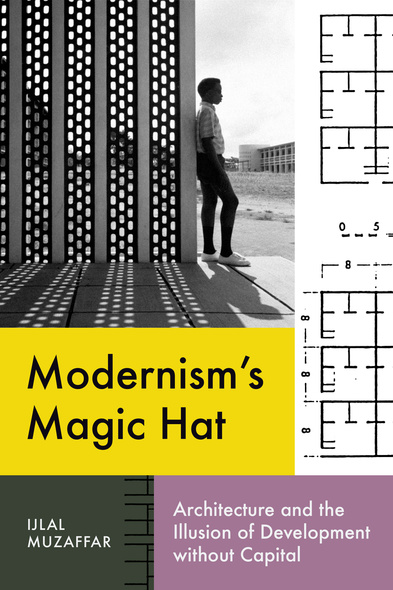
Modernism’s Magic Hat
Architecture and the Illusion of Development without Capital
Examines the role of architecture in the history of global development and decolonization.
In Modernism’s Magic Hat, Ijlal Muzaffar examines how modern architects and planners help resolve one of the central dilemmas of the mid-twentieth-century world order: how to make decolonization plausible without accounting for centuries of capital drain under colonial rule. In the years after World War II, architects and planners found extensive opportunities in new international institutions—such as the World Bank, the UN, and the Ford Foundation—and helped shape new models of global intervention that displaced the burden of change onto the inhabitants. Muzaffar argues that architecture in this domain didn’t just symbolically represent power, but formed the material domain through which new modes of power acquired sense. Looking at a series of architectural projects across the world, from housing in Ghana to village planning in Nigeria and urban planning in Venezuela and Pakistan, Muzaffar explores how architects and planners shaped new ideas of time, land, climate, and the decolonizing body, making them appear as sources of untapped value. What resulted, Muzaffar argues, is a widespread belief in spontaneous Third World “development” without capital, which continues to foreclose any global discussion of colonial theft.
With a flourish worthy of his subject, Ijlal Muzaffar expertly reveals the conjuring tricks by which the neocolonial project of ‘development’ without redistribution or reparation was carried out across the Global South. Modernism’s Magic Hat shows how, serving the Bretton Woods institutions, architecture and urbanism helped decisively in shifting impossible burdens onto those from whom the most was stolen. Thus, the earnest provision of half-built houses becomes sweat-soaked risk management. Or, ‘tropical architecture’’ as land reform reproduces colonialism’s indirect rule. Unsparingly dragging modernism’s dimly lit performances into the brilliant daylight, Muzaffar holds the whole show accountable not for its failures but for its success.
A searing account of the economic, epistemic, and aesthetic fictions of modern architecture that have been mobilized to mask colonialism's ravages on the one hand and postcolonial predicaments on the other. Modernism’s Magic Hat reckons with postwar institutions of development, including the UN, making this an important intervention in architectural history from the south. Across multiple locations in Africa and Asia, Muzaffar offers fugitive conceptual thinking on risk, debt, and planning in the very formations of modernism.
Ijlal Muzaffar is a professor of modern architectural history at the Rhode Island School of Design and is the coeditor of Architecture in Development: Systems and the Emergence of the Global South.
- Introduction. Soft Bricks, Hard Mortar of Immanence: Thinking through Other Figurations of Architecture in Development
- Part I: Risk/Belief
- Chapter 1. House without a Core: Capturing Intent in Ghana
- Chapter 2. God’s Gamble: Self-Help Architecture and the Housing of Risk
- Part II: Borders/Open-Endedness
- Chapter 3. Boundary Games: Military Rule, International Experts, and the Aesthetics of Incompletion in Pakistan
- Chapter 4. “Settlers Welcome”: Designing the Infinite Present, from Pakistan to the Philippines
- Chapter 5 Fuzzy Planning: MIT, Harvard, and the Image of Planning in Venezuela
- Part III: Materiality/Depth
- Chapter 6. Landing Architecture: Bodies and Land in Transition in the Gold Coast
- Chapter 7. Tropics of Shame: Fry, Drew, and the Designing of Depth
- Chapter 8. Counting Quality: Locating Patterns of Change, from Geddes to Koolhaas
- Acknowledgments
- Notes
- Index

